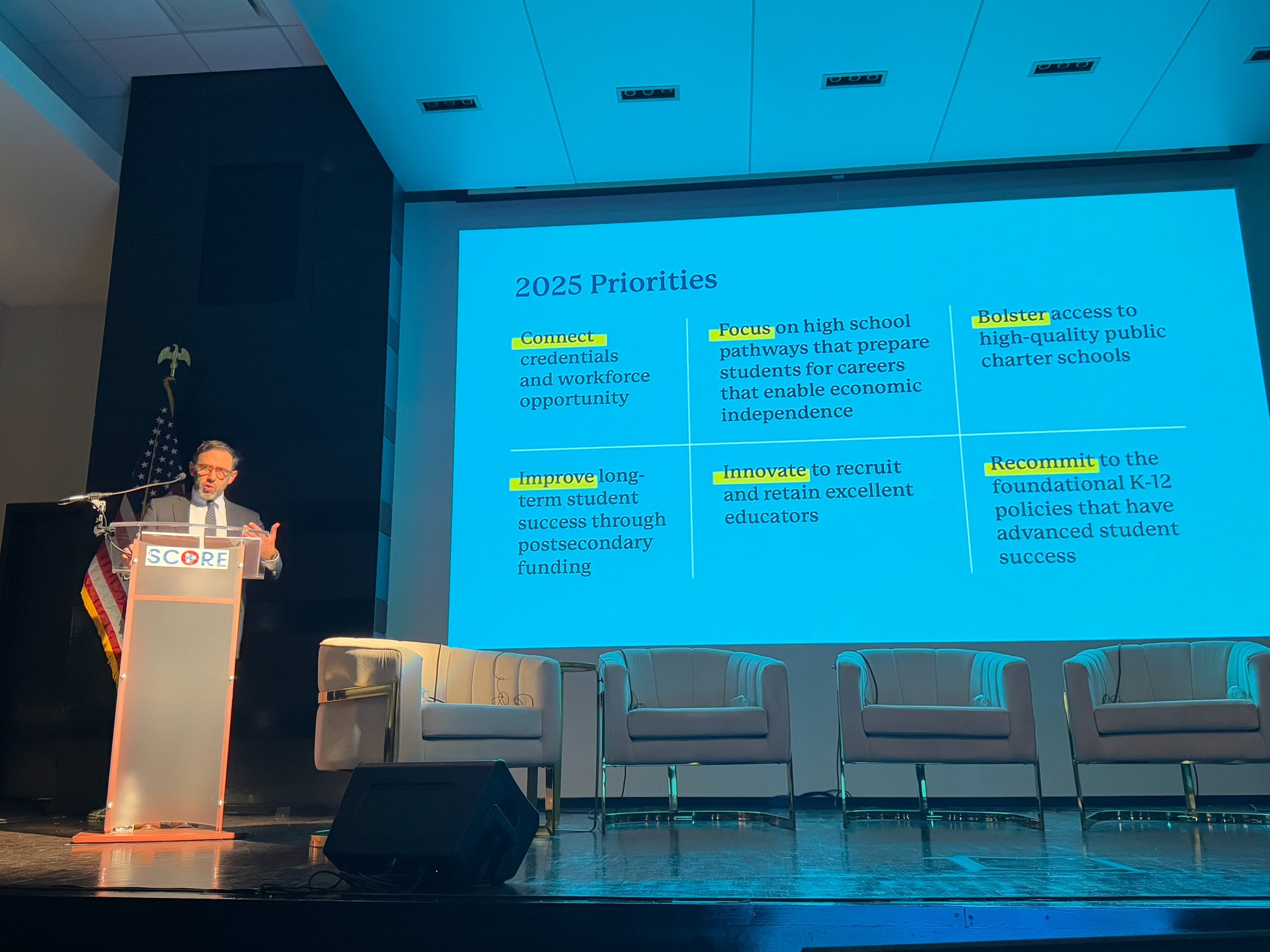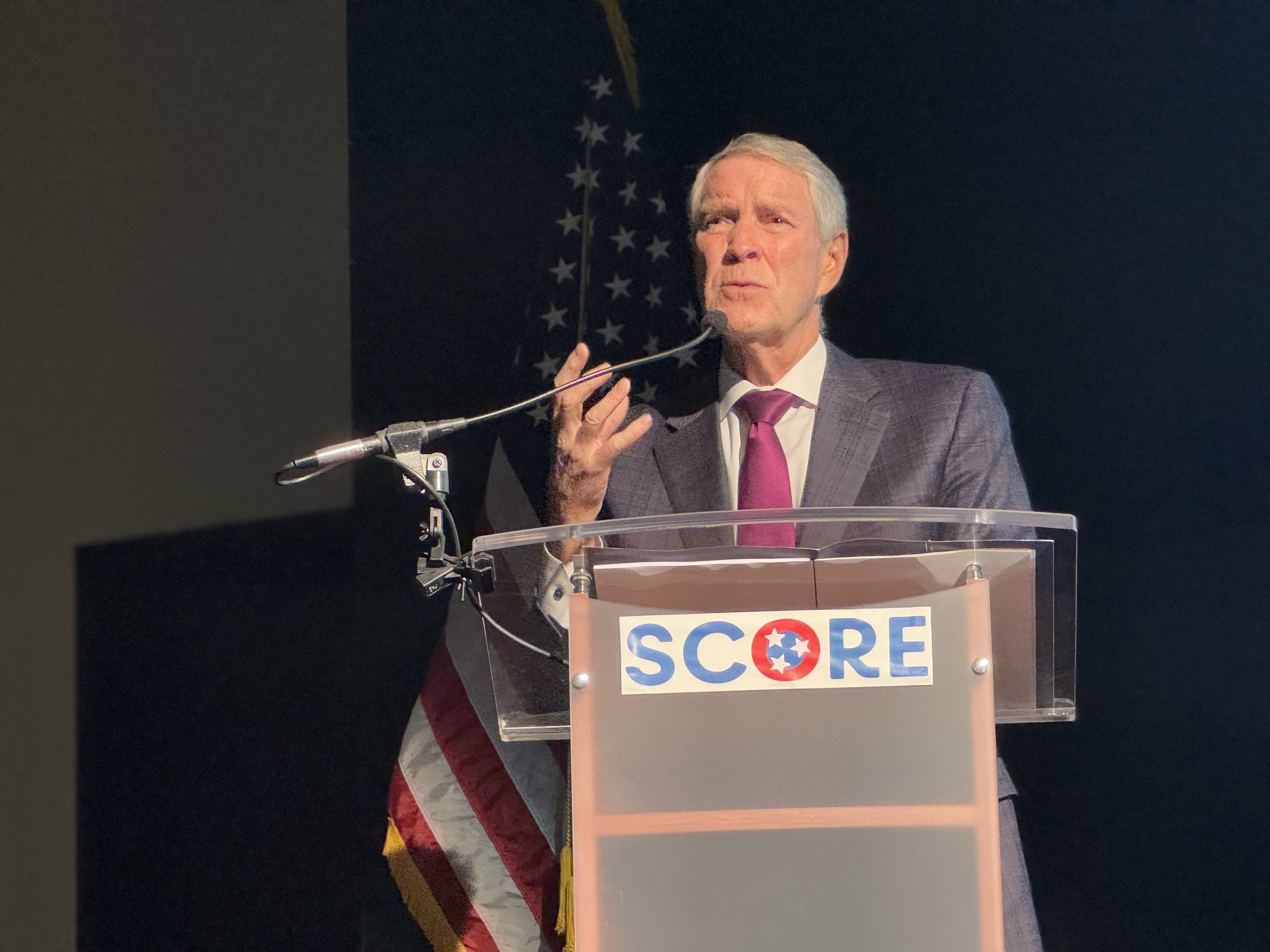SCORE report stresses the need to connect students with credentials that ‘lead to economic independence’
SCORE President and CEO David Mansouri laying out the organization’s 2025 priorities (Photo by SCORE)
Despite increased investments and emphasis on workforce development in recent years, a new report from the State Collaborative on Reforming Education (SCORE) says that only 44 percent of students pursuing postsecondary education in Tennessee actually complete a credential, with even fewer students earning credentials that “clearly lead to economic independence.”
With such trends in mind, SCORE outlined several priorities for education in Tennessee at the organization’s annual State of Education event, including connecting credentials to workforce opportunity, improving long-term student success through additional postsecondary funding, and bolstering access to “high-quality public charter schools.” In addition, SCORE analysts stressed the need to focus on “high school pathways that prepare students for careers that enable economic independence.”
The organization also emphasized the need for K-12 schools to increase English language arts and math proficiency rates to better prepare students for the workforce.
A SCORE graphic shows that more than half of Tennessee students are earning credentials that are not aligned to high-demand occupations.
Bill Frist, a former U.S. senator and SCORE’s founder, said during Friday’s event that more than 60 percent of jobs in Tennessee will soon “require some kind of education beyond high school.” However, he said, only about 48 percent of Tennesseans have that education today.
Former U.S. Senator Bill Frist (Photo by SCORE)
“After implementing rigorous state academic standards and aligned assessments, Tennessee has stood out as one of the fastest growing states in the nation for its progress between 2009 and 2015. Then with Tennessee's commitment to accelerate learning after the COVID-19 pandemic, our state's academic recovery was highlighted as one of the most robust nationally,” he said. “We have to harness the power of this community to realize a vision of close alignment across education and work that ensures Tennessee students are prepared for careers that enable economic independence.”
Noting the need for alignment, Chattanooga State Community College President Rebecca Ashford said during the event’s panel discussion that higher ed institutions like hers have been working to connect students with credentials for careers that can support a family. She said building that connection should be a key priority for educators in today’s changing job market.
“No longer is it just about access and no longer is it even just about student success. It's about, ‘What is the impact on the students’ lives once they leave us? Are they leaving us with a mountain of student debt and new jobs? Are they leaving us with a life that's not improved?’ Several years ago, we created a new vision for Chattanooga State, that 5,000 Chattanooga State students of every race and income level will earn a credential leading to a family sustaining wage,” she said during Friday’s webinar.
“We use that term ‘credential’ very specifically, because that could be a degree at Chattanooga State. It could be a TCAT credential, but it could also be a six-week long workforce development non-credit training that improves someone's lives in a very short period of time. So really, the entire narrative at the college has shifted.”
Andrea Poynter, the executive director of the recently approved public charter school Nurses Middle College (Nurses MC) Nashville, said high school internship opportunities could be one way to ensure career success for students later in life, among other strategies.
“The goal is to start off connecting those dots from high school, getting those students prepared to enter into the economic workforce,” she said.




